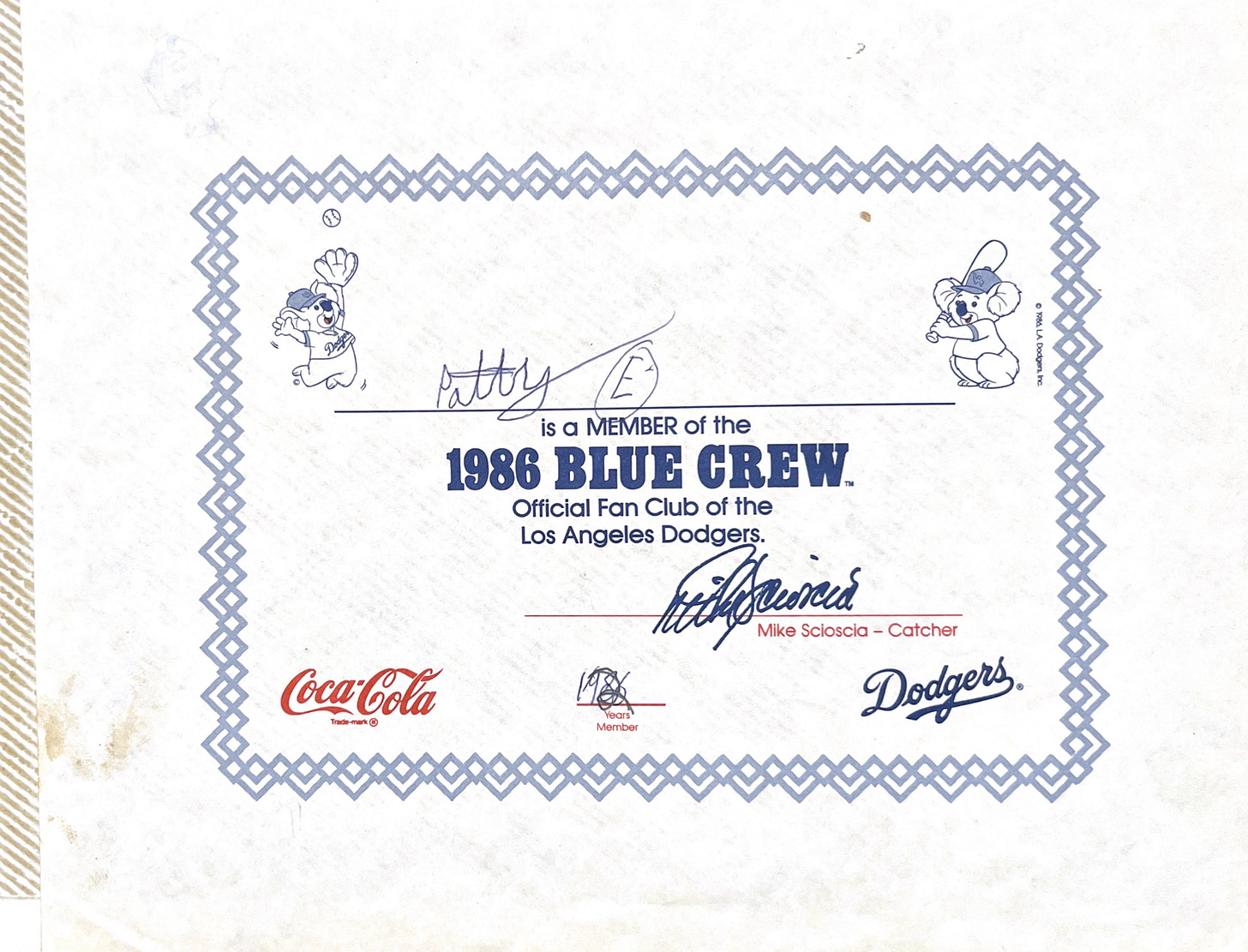When the team was silent on immigration raids and reparations for ousted Chavez Ravine residents, it spoke volumes to its homegrown fan base. Time to speak up.
Patricia Escárcega is a journalist based in Los Angeles. Her writing has appeared in The New York Times, Playboy, The Washington Post and other outlets. She has worked as a restaurant critic for the Los Angeles Times and Phoenix New Times, and as a reporter for the Arizona Republic.
The Dodgers start yet another World Series today, but winning isn’t all that matters — at least not to fans terrorized by the Trump administration’s mass deportation campaign.
The team’s muted response to the Immigration and Customs Enforcement raids has led some lifelong fans — myself included, and I have the “documentation” from preschool proving it — to reconsider the depth of our loyalty. How far do you follow a team that doesn’t love you back?
Fueled by tradition, nostalgia and passionate devotion, Latino Dodger fandom is anything but casual; it’s more akin to a civic religion. In September, I was reminded of this at the launch party for the Dodgers’ new Single-A minor league affiliate, the aviation-themed Ontario Tower Buzzers. Surrounded by abuelitas in Dodger jerseys, toddlers in Dodger onesies and fellow Chicanos reminiscing about Fernandomania and the comforting voice of Jaime Jarrín on the radio, I felt a deep sense of memory, familiarity and belonging.
Yet as ICE raids surged in Los Angeles this summer, it was hard to reconcile such devout fandom with the team’s deafening silence. Even with the Dodgers on the verge of another championship, I haven’t forgotten that silence.
After the terror began in June, fans expected the team to convey support for L.A.’s Latino immigrant communities. Eventually, the silence and waiting turned into a story itself. The betrayal led to calls for a boycott. As Chicano scholars Gabriel and Enrique Buelna wrote this summer in L.A. Taco, “We buy the jerseys, the beer, the overpriced nachos — yet we’re still treated like background noise, like we don’t belong in the very stadium we helped build.”
The Dodgers did release a statement weeks after the first wave of ICE raids that vaguely acknowledged “what’s happening in Los Angeles” and promised to “support and uplift the communities of Greater Los Angeles.” In corporate boilerplate speak, the Dodgers pledged $1 million to assist families affected by “recent events.”
In contrast, the soccer clubs LAFC and Angel City FC responded swiftly. The latter was the first Los Angeles sports team to issue a statement expressing support for immigrant communities. Before its June 14 game, players took the field in shirts that said “Immigrant City Football Club,” and the team donated to a legal aid charity for immigrants. LAFC was right behind Angel City FC in issuing a statement; at some of its home games, fans have displayed massive anti-ICE banners.
Perhaps the disconnect with their Latino fans stems from the Dodgers’ largely white executive leadership that is insulated from the communities that drive their success. Public data related to Latinos in senior roles is limited, but the Dodgers’ organization chart shows minimal Latino presence in the upper echelons of executive power. Leaders who truly understand these communities might be inclined to engage Latino fans with more than marketing gimmicks such as heritage nights at Dodger Stadium and stitching “Los Doyers” on T-shirts.

If anything, the team’s perfunctory acknowledgement of the terror inflicted on half its fan base opens wounds that many of its Latino fans had generously closed. Dodger Stadium itself, in Chavez Ravine, stands on what were three vibrant Mexican American neighborhoods — Palo Verde, La Loma and Bishop — that the city demolished in the 1950s using eminent domain. Though Los Angeles leaders promised public housing, they abandoned the plan and eventually sold the land to Dodgers owner Walter O’Malley even before the final residents had been forcibly removed. Today, few Angelenos know that a two-story elementary school lies buried near third base.
As the Dodgers stand on the brink of another World Series, the air is charged not only with hope but with quiet tension. If the Boys in Blue win the title, will the team return to the White House, as they did in April, to present President Trump with a jersey? Will fans be forced, once again, to watch their beloved franchise align itself, however indirectly, with an administration whose immigration policies have inflicted lasting trauma on Latino families across Southern California and the nation?
This Substack is reader-supported. To receive new posts and support my work, consider becoming a free or paid subscriber.
If the Dodgers wish to honor their history and Latino fan base, they must engage in a direct and unflinching reckoning. Leadership must publicly condemn the inhumanity of ICE raids and mass deportations. The team must affirm that Dodger Stadium is a place where Latinos, and all Angelenos, are safe.
In baseball, greatness is measured by performance under pressure. The Dodgers had major errors in 2025. Now, it’s time for them to step up — or risk losing more of the community that helped make them legends.






